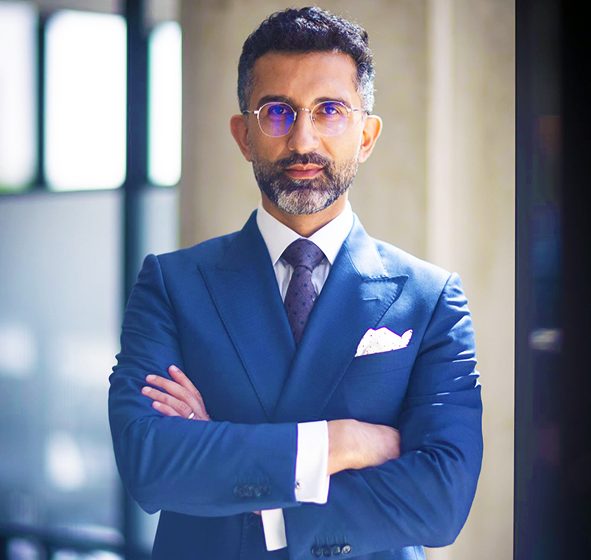Publiq Officially Arrives with a New Era of European Bistronomy in Dubai!
Profitable first half-year – BMW Group stays on course in difficult environment

- 1st half-year: Group EBT totals € 16.2 billion (EBT margin: 24,5%)
- BEV sales more than double in 1st half-year (+110.3%)
- Persistent supply bottlenecks ‒ solid sales volume growth in 2nd half-year yoy expected
- Zipse: “High degree of resilience and flexibility”
- NEUE KLASSE defines what BMW Group stands for
Munich. In a highly volatile environment, the BMW Group remained on course in the first half of 2022. With flexibility and expertise, the company encountered challenges, including continued supply chain disruptions and bottlenecks for semiconductors and specific supplier parts.
The BMW Group’s underlying strength and operational excellence was reflected in its profits for the first six months: Despite the volatility, the company earned a Group EBT margin of 24.5% (Q2 2022: 11.3%). The revaluation of the previously held shares in the Chinese joint venture BMW Brilliance Automotive Ltd. (BBA) contributed to the high return. This revaluation due to full consolidation on February 11 increased the financial result by € 7.7 billion.
“Especially under unfavourable conditions, the BMW Group is characterized by a high degree of resilience. The company recognizes changes in the economic environment at an early stage and counteracts them accordingly. Our high degree of flexibility and operational performance have proven time and again to be an effective combination to ensure the BMW Group’s successful course even in rough waters. This strength will now be important again, as we see an increasing economic headwind coming up in addition to the ongoing supply shortages,” said BMW AG CEO Oliver Zipse in Munich on Wednesday.
To the long-term success of BMW Group contribute its pioneering spirit and consistent focus on innovation. An upcoming proof-point of its innovative strength is the pure electric NEUE KLASSE. It will be fully geared towards sustainability and circular economy, using new technologies and production processes from the middle of the decade onwards. The all-electric products of NEUE KLASSE will make a significant contribution to BMW Group sales volumes from the middle of the decade onwards and will further accelerate the ramp-up of e-mobility.
“Emotional products and innovative technology are and will remain the backbone of our business success. Our rapidly growing range of all-electric vehicles with the BMW Operating System 8 impresses customers and experts alike — and is already a central driver of our sales today,” said Zipse.
“From 2025, we will make the next big leap with the NEUE KLASSE: The NEUE KLASSE defines what the BMW Group stands for in the future. At the start, we are planning a compact sedan in the 3-series segment and a sporty SUV. By the end of the decade, the NEUE KLASSE is expected to account for more than half of our sales.
Hydrogen
Zipse highlighted that the role of hydrogen in individual mobility also needs reassessing. “In our view, hydrogen is the missing piece of the puzzle that can complement electromobility in places where battery-electric drivetrains are unable to gain traction.”
Deliveries of fully electric vehicles more than double
In the first half of 2022, the BMW Group was able to more than double its sales of pure electric vehicles to 75,890 units (2021: 36,087 vehicles/+110.3%; Q2 2022: 40,601 units; +85.2%). During the same period, sales of electrified vehicles increased significantly, climbing 20.4% to 184,468 units (2021: 153,243 vehicles; Q2 2022: 94,799 units; +14.2%). Electrified vehicles’ share of total deliveries rose to 15.9% (HY1 2021: 11.4%).
The BMW iX3* (2022: 21,548 vehicles; HY1 2021: 10,009 vehicles) and the MINI Cooper SE* (2022: 18,428 vehicles; HY1 2021: 13,454 vehicles) remained the most in-demand fully electric models, reporting significantly higher sales than in the prior-year quarter. The innovative BMW iX and BMW i4, which are still being launched in the markets, have also been well received and contributed to the outstandingly high order bank of BMW Group. Further sales growth is expected in the second half of the year – on top from the fully-electric BMW i3 built in China, but also from the BMW iX1* and the BMW i7* luxury sedan.
With a total of 1,160,094 vehicles, BMW Group sales failed to reach the all-time high of the previous year (HY1 2021: 1,339,047 units; -13.4%; Q2 2022: 563,187 units; -19.8% from Q2 2021). The company nevertheless expanded its leading position in the global premium segment.
Lower sales due to supply bottlenecks – base effect from prior year
Ongoing semiconductor supply issues and supply chain disruptions following Covid lockdowns in China, impacted production and deliveries during the first six months.
With a total of 1,160,094 vehicles, BMW Group sales failed to reach the all-time high of the previous year (HY1 2021: 1,339,047 units; -13.4%; Q2 2022: 563,187 units; -19.8% from Q2 2021). The company nevertheless expanded its leading position in the global premium segment.
Significantly higher Group revenues in first half-year
Despite negative sales growth, Group revenues climbed 19.1% in the first six months of 2022 to € 65,912 million (HY1 2021: € 55,360 million; Q2 2022: 34,770; +21.6%). The full consolidation of the Chinese subsidiary BBA was one of the main contributing factors, bringing in revenues of around € 11 billion.
The Group cost of sales also rose significantly for the same reason, reaching € 54,399 million (HY1 2021: € 44,109 million; +23.3%; Q2 2022: € 28,780 million; Q2 2021: € 22,521 million; +27.8%).
Group earnings before tax totalled € 16,156 million after six months (HY1 2021: € 9,736 million; +65.9%), a new all-time high. This includes a tailwind of € 7.7 billion from the revaluation of previously held BBA shares at fair market value.
Group net profit amounted to €13,232 million (HY1 2021: € 7,623 million; +73.6%; Q2 2022: € 3,047 million; Q2 2021: € 4,790 million; -36.4%).
Group research and development costs (IFRS) for the first half-year totalled € 3,128 million (HY1 2021: € 2,737 million; +14.3%; Q2 2022: € 1,560 million; Q2 2021: € 1,304 million/+19.6%) and were therefore significantly higher than the previous year. Spending was mainly focused on new models, as well as further electrification and digitalisation of the line-up.
Upfront investments were also made for the NEUE KLASSE and automated driving. The R&D ratio (HGB) of 4.5% (HY1 2021: 4.6%; Q2 2022: 4.5%; Q2 2021: 4.5%) was on a par with the previous year. The R&D ratio for the full year is expected to be within the target range of 5-5.5%.
“Our investors know that the BMW Group has the financial strength to invest today in the success of tomorrow. We are steering the company through the current transformation with strategic foresight. We are positioning it in such a way that we can leverage our employees’ innovative capabilities and expertise to play a leading role in sustainable mobility today and in the future,” stated Nicolas Peter, member of the Board of Management responsible for Finance.
Earnings slightly higher for Financial Services Segment
The Financial Services Segment managed a total of 5,411,274 financing and leasing contracts with retail customers at the end of the second quarter (31 December 2021: 5,577,011/-3.0%). The limited availability of new cars – combined with intense competition in the financial services sector – was also reflected in the number of new contracts. In the first half of 2022, a total of 815,448 new financing and leasing contracts were concluded with retail customers (HY1 2021: 1,029,345; -20.8%; Q2 2022: 382,019; Q2 2021:540,279; -29.3%).
Outlook – high volatility expected to continue
The BMW Group expects business conditions to remain difficult in the second half of the year. The ongoing supply bottlenecks, particularly for semiconductors, the war in Ukraine and interruptions in supply chains have led to a decline in deliveries in the Automotive segment in the first half of the year. Although the company expects sales volumes in the second half of the year to be solidly higher than in the same period of the previous year, this will not fully compensate for lost volume in HY1 2022. As a consequence, deliveries for the year are expected to be slightly below previous year.
The percentage of electrified vehicles should still increase significantly and sales of fully electric vehicles are expected to more than double.
CO₂ emissions in the EU new car fleet can still be expected to be slightly reduced. The significant increase in the proportion of electrified vehicles in total deliveries of the BMW Group is decisive for this.
Ongoing inflation and interest rate hikes will continue to shape the macroeconomic environment in the coming months and impact demand.
Further significant tightening of sanctions against Russia or reactive measures by Russia, an interruption of the gas supply impacting own plants and suppliers’ locations, as well as the possibility of the conflict spreading outside of Ukraine and further extended and ongoing Covid lockdowns are not factored into this guidance.
Statement from Dr. Hamid Haqparwar, Managing Director, BMW Group Middle East
“Overall, the first half of the year showed that the BMW Group, thanks to its flexibility, high level of expertise and foresight, was able to continue on its strategic path and push forward with the transformation towards sustainable mobility. As a leader in e-mobility, we firmly believe in the course we have chosen and continue to pursue our strategy in the Middle East – with the right products at the right time”
“I am convinced that Hydrogen, one of the most efficient options for storing and transporting renewable energy, will play a major role as a fuel in this region of the world, and we will be piloting the second generation of our hydrogen fuel cell drive train in a small series of the BMW iX5 Hydrogen in due course. In addition to the transition to renewable energies in production and the supply chain, we will also significantly reduce our resource consumption as we pave the way for a stronger circular economy.”

















